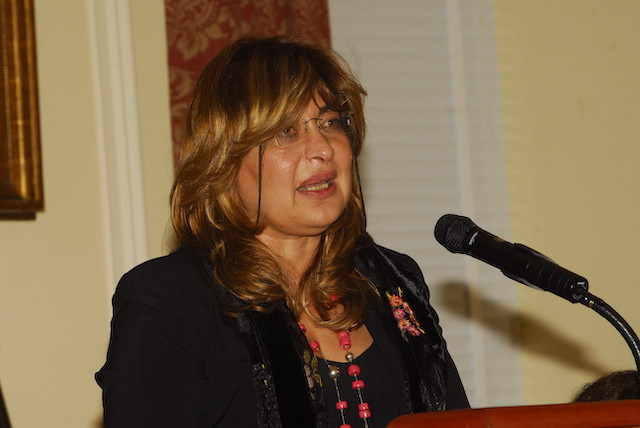What have I learned when asking women what makes them choose the contraceptive method they use (hint: men, you play an important role in this story)
The story of humans and contraception is not a new one. For a very long time now, women have been striving to understand, learn and increase their control over their reproduction. However, the most substantial revolution in this regard came about with developments in science and technology. A revolution that could only have taken place due to the advent of hormonal contraceptives.
Recently, I had the honor of speaking with 23 multi-cultural young expat women from all five continents that are based in Berlin, about how they perceive the connection between the contraceptive method they use and their sexual health. All the women, ages 23-36, had an academic level of education and identified themselves as heterosexual, female and sexually active. Around 65% of the women were single and the rest were in a long-term relationship. The women were highly mixed in terms of color and religious affiliation origins, some came from predominantly conservative societies such as India, Iran or Turkey whereas others came from Europe, the U.S, Australia, etc. Majority of women were using condoms as their primary method of contraception; three were using IUD devices and only two were using hormonal method of contraception. The aim was to see what parts of the contraception discourse and decision-making process are rooted in our cultural background and what parts exceed culture and could be described as a cross-cultural female experience. The women expressed three main reasons that influence their choice of contraception.
The first is protection.
When women feel safe and protected their sexual health is higher – period. The women I spoke with addressed the need to feel protected from unwanted pregnancy and/or STD’s. In addition, they repeatedly expressed a need to feel protected in their day to day lives, outside of any sexual encounter. Meaning, they want to be protected from side effects that can originate due to contraceptive use. For instance, “the first year was fine [using hormonal contraception] but then I felt many changes, like a drop in libido” (29, U.S.).
For many, the use of contraception is not a “task” they are concerned about only while engaging in sexual intercourse, but rather a process that stretches along the entirety of their fertile life, “any method other than condoms feels like a much bigger thing because I have to be dealing with it constantly, regardless if I’m having sex or not” (25, Turkey). It demands never-ending maintenance, thought and care. Using contraceptives is super important for women’s’ feeling of protection in sexual intercourse. Nevertheless, women’s feeling of protection outside of a sexual encounter is as influential and essential to their sexual wellbeing.
The second is freedom.
“To be very honest I’m 30 now and I think I picked up my first pack of condoms on my own a few months ago. There’s a sense of liberation in that you’re able to go to the store and just buy unapologetically. Where I grew up, this wouldn’t be possible.” (30, India) This indicates that when women live in a socio-cultural climate that rather encourage than shaming them for choosing a contraceptive method that is adequate to their specific life circumstances, their sexual health increases.
The common threads between the two above mentioned reasons, namely, protection and freedom, are first of all, internationally recognized basic human rights. And secondly, both require a complementary socio-cultural and economical structure in order to exist. Here is where it gets complicated – because regardless of if they are from Germany, India, U.S. or Iraq, all the women I have spoken to share a mutual feeling that their environment is not inclined towards their individual contraceptive needs. ”The mainstream ideas and reality… there’s a drastic difference, people like to deny it” shared a woman from India (30). Or “In the Netherlands there’s no promotion for safety, shared safety” (26, The Netherlands).
It is important to note that the experiences of a woman from Istanbul is distinctly different from that of a woman from Berlin “sex is first of all from the country wise- not talked” (25, Turkey). That said, both share the feeling that the public discourse is lacking due to social taboos, making them feel isolated in this never-ending task “In an environment without education it’s on the women, but in an environment with education it is also on the women, how could this be?” (33, U.S). This fact is especially unfortunate for us women, considering that this conversation is in itself promoting better sexual health and wellbeing.
So how do we move forward? I’m glad that you asked! This leads us to the third reason for how and why women choose their respective contraceptive method.
The third is relationships.
Relationships with our peers, such as friends, colleagues, sisters etc. Relationships in our communities, with emphasis on our sexual health care providers. And last but by no means least, romantic relationships.
Here, ladies and gentlemen, lies the key to creating substantial change in women’s feeling of protection and freedom, resulting ultimately in the enhancement of women’s sexual health. How come? Because, in intimate relationships lies an enormous power. Power to change things for better, to heal and to grow.
Women who were lucky to be situated in an environment where conversations around contraception were less taboo, allowed them to learn from the experiences of their peers, and hence, led them to a more informed and accurate choice process. In accordance, these women expressed having healthier and more satisfying sex lives. “We have a lot of power from the way we talk about sex, one person really changed my life in this sense. It changed everything for me” (23, Poland).
When putting the spotlight on romantic relationships, the coin very much has two sides. On one side, the stress, shame, and fear that women experience in the public sphere reoccur or even multiply within a romantic sexual encounter. Those instances were commonly characterized by the absence of responsibility from the male side to ensure a sexual encounter safe from pregnancy and/or STD’s. To put it explicitly, the women had to ask the guy (in many cases more than once) to use a condom. This can easily be understood as a minor issue, but it is absolutely not. Many women feel that if they don’t initially ask the man to use a condom, then he won’t initiate it, “you have to be super super strong in the interaction and if it’s all on you it’s really hard” (29, Germany). This type of behavior shouts a clear message to women that ‘your health and safety are less important than my pleasure’. “I’ve never had a guy asking me ‘how is it for you?’” (27, Switzerland). This experience, which is familiar to way too many women, harm women’s sexual health as well as their ability to fully enjoy a sexual interaction.
On the flip side, women who have experienced romantic encounters, casual or long-term alike, that were characterized by shared responsibility of contraceptive measures, along with mutual care for each other’s wellbeing and pleasure – expressed elements of healing, growth, and empowerment. “In relationships I found how to claim agency through being with someone else” (28, U.S).
Throughout all these conversations, what astonished me the most was how dominant the “healing power of men” was, when they chose to take this responsibility. For me, that is an important lesson I would like to underline. Men have power to aid women in overcoming all the shaming, blaming and hatred that we experience in the public sphere with relation to our bodies and our sexuality.
In romantic interactions where men tried to facilitate an intimate environment that promoted A) safety and B) freedom – magic occurred. Such women felt healthier and, moreover, their pleasure from sex increased. If I may take a wild and uneducated guess, I would assume that respectively, the sexual health of men in those interactions also increased.
In fact, the biggest lesson I’ve learned from talking with women about contraception is that if we just dare, all of us, to create attentive discourse about contraceptives and their impact on our lives, among our close circles, with our health care providers and with our romantic partners, our sexual health as well as our satisfaction from sex could expand above and beyond.
The good news is that the power is in our hands. As the changes we create in our intimate relationships impact our lives as a whole.
To read the piece in Turkish please click here.
Illustration on the cover: Anat Warshavsky





